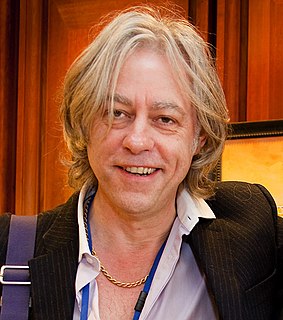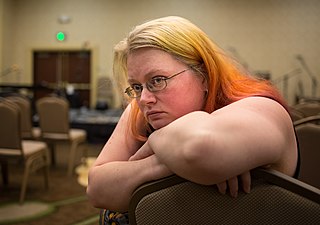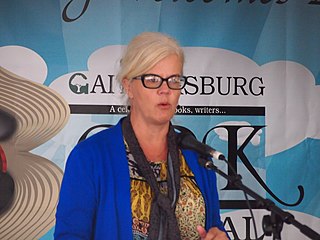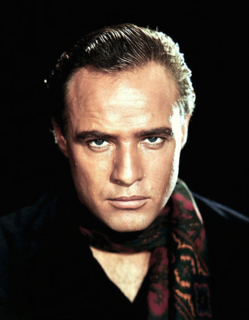A Quote by Kwame Anthony Appiah
When philosophers talk about reason they often have in mind Having been in the business of philosophy more than half my life, I have learned that reason doesn't change many minds. But there's a more ordinary sense of resonableness, which involves not just logic but a sensitivity to other peoples real concerns, a desire to understand, even when you don't agree. Many people are reasonable in this way.I'm willing to think that the world will be made better by the conversations of reasonable people, even if there are unreasonable people and people who don't want to converse as well.
Quote Topics
About
Agree
Been
Better
Business
Change
Concerns
Conversations
Converse
Desire
Even
Half
Having
His Way
I Have Learned
Involves
Just
Learned
Life
Logic
Made
Many
Mind
Minds
More
My Life
Often
Ordinary
Other
People
Philosophy
Real
Reason
Reasonable
Sense
Sensitivity
Talk
Than
Think
Understand
Unreasonable
Want
Way
Well
Which
Will
Willing
World
Related Quotes
In order to understand people, we have to understand their way of life and approach. If we wish to convince them, we have to use their language in the narrow sense of the mind. Something that goes even much further than that is not the appeal to logic and reason, but some kind of emotional awareness of the other people.
The real trouble with this world of ours is not that it is an unreasonable world, nor even that it is a reasonable one. The commonest kind of trouble is that it is nearly reasonable, but not quite. ... It looks just a little more mathematical and regular than it is; its exactitude is obvious, but its inexactitude is hidden; its wilderness lies in wait.
...a very terrifying aspect of our society, and other societies, is the equanimity and the detachment with which sane, reasonable, sensible people can observe [war and human suffering]. I think that's more terrifying than the occasional Hitler ...or other that crop up - these people would not able to operate were it not for this apathy and equanimity - and therefore I think that it is in some sense the sane and reasonable and tolerant people who should share a very serious burden of guilt, that they very easily throw on the shoulders of others who seem more extreme and more violent.
My books are about ordinary people, like you, me, people on the street, people who really have an expectation of reasonable happiness in life, want their life to have a sense of security and predictability, who want to belong to something bigger than them, who want love and affection in their life, who want a good future for the children.
I like to think of myself as a reasonable man. But I have buried too many friends in the too-recent past, and I have seen too many lies go unquestioned, and too many questions go unasked. There is a time when even reasonable men must begin to take unreasonable actions. To do anything else is to be less than human.
Childhood is less clear to me than to many people: when it ended I turned my face away from it for no reason that I know about, certainly without the usual reason of unhappy memories. For many years that worried me, but then I discovered that the tales of former children are seldom to be trusted. Some people supply too many past victories or pleasures with which to comfort themselves, and other people cling to pains, real and imagined, to excuse what they have become.
So many white people don't want to talk about race; it's uncomfortable. Many reason that slavery happened more than a century ago, and people alive today had nothing to do with it. But the particulars of these stories, from slavery to segregation to civil rights and mass incarceration, are at the marrow of life in America today.
I think ultimately, people are selfish in that department [blues], in a good way - the reason we're attracted to art is because it somehow reflects us. And I think, ultimately, we're a tribal people by nature. We're not individualistic. We almost like to hear that there's other people in a worse state than us. Sometimes even more than we like hearing there are people in better states than us.
I think one reason is that philosophers are more insecure to speak accessibly because non-philosophers are skeptical that philosophers have any special expertise. After all, all people - not just philosophers - have attitudes and points of view on various philosophical questions, and they rather resent being told that there are professionals who can think about these things better.
People will like you who never met you, they think you're absolutely wonderful; and then people also will hate you, for reasons that have nothing to do with any real experience with you. People don't want to lose their enemies. We have favorite enemies, people we love to hate and we hate to love. If they do something good, we don't like it. I found myself doing that with Ronald Reagan. He is anathema to me. If he does something that's reasonable, I find my mind trying to find some way to interpret it so that it's not reasonable, so that somewhere it's jingoist extremism.
In terms of other people's perception of me, that's their business. There are people who I have never met but, for whatever reason, I am certain that these people are jack-offs. I've never met Billy Joel, but I'm absolutely convinced he's an asshole. I can't justify that opinion, that's just what I think. But my opinion about Billy Joel isn't going to affect him in the slightest. In the same way, I am sure there are people out there who are completely convinced that I am an asshole, for whatever reason. They might even feel more justified than I feel about my presumptive opinion of Billy Joel.







































